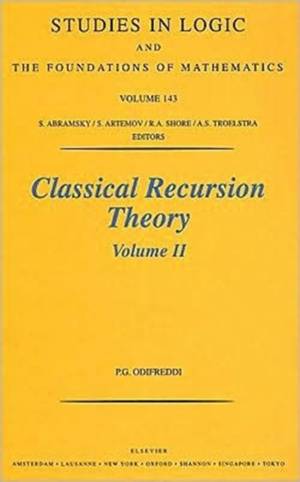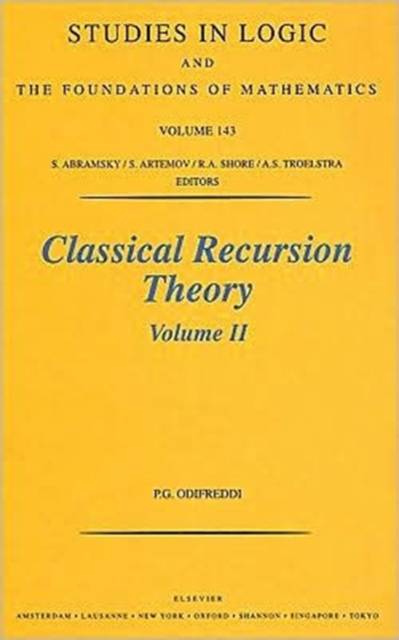
- Retrait gratuit dans votre magasin Club
- 7.000.000 titres dans notre catalogue
- Payer en toute sécurité
- Toujours un magasin près de chez vous
- Retrait gratuit dans votre magasin Club
- 7.000.000 titres dans notre catalogue
- Payer en toute sécurité
- Toujours un magasin près de chez vous
Description
Volume II of Classical Recursion Theory describes the universe from a local (bottom-upor synthetical) point of view, and covers the whole spectrum, from therecursive to the arithmetical sets.The first half of the book provides a detailed picture of the computablesets from the perspective of Theoretical Computer Science. Besides giving adetailed description of the theories of abstract Complexity Theory and of Inductive Inference, it contributes a uniform picture of the most basic complexityclasses, ranging from small time and space bounds to the elementary functions, with a particular attention to polynomial time and space computability. It alsodeals with primitive recursive functions and larger classes, which are ofinterest to the proof theorist. The second half of the book starts with the classical theory of recursivelyenumerable sets and degrees, which constitutes the core of Recursion orComputability Theory. Unlike other texts, usually confined to the Turingdegrees, the book covers a variety of other strong reducibilities, studyingboth their individual structures and their mutual relationships. The lastchapters extend the theory to limit sets and arithmetical sets. The volumeends with the first textbook treatment of the enumeration degrees, whichadmit a number of applications from algebra to the Lambda Calculus.The book is a valuable source of information for anyone interested inComplexity and Computability Theory. The student will appreciate the detailedbut informal account of a wide variety of basic topics, while the specialistwill find a wealth of material sketched in exercises and asides. A massivebibliography of more than a thousand titles completes the treatment on thehistorical side.
Spécifications
Parties prenantes
- Auteur(s) :
- Editeur:
Contenu
- Nombre de pages :
- 949
- Langue:
- Anglais
- Collection :
- Tome:
- n° 143
Caractéristiques
- EAN:
- 9780444502056
- Date de parution :
- 07-09-99
- Format:
- Livre relié
- Format numérique:
- Genaaid
- Dimensions :
- 163 mm x 231 mm
- Poids :
- 1655 g







